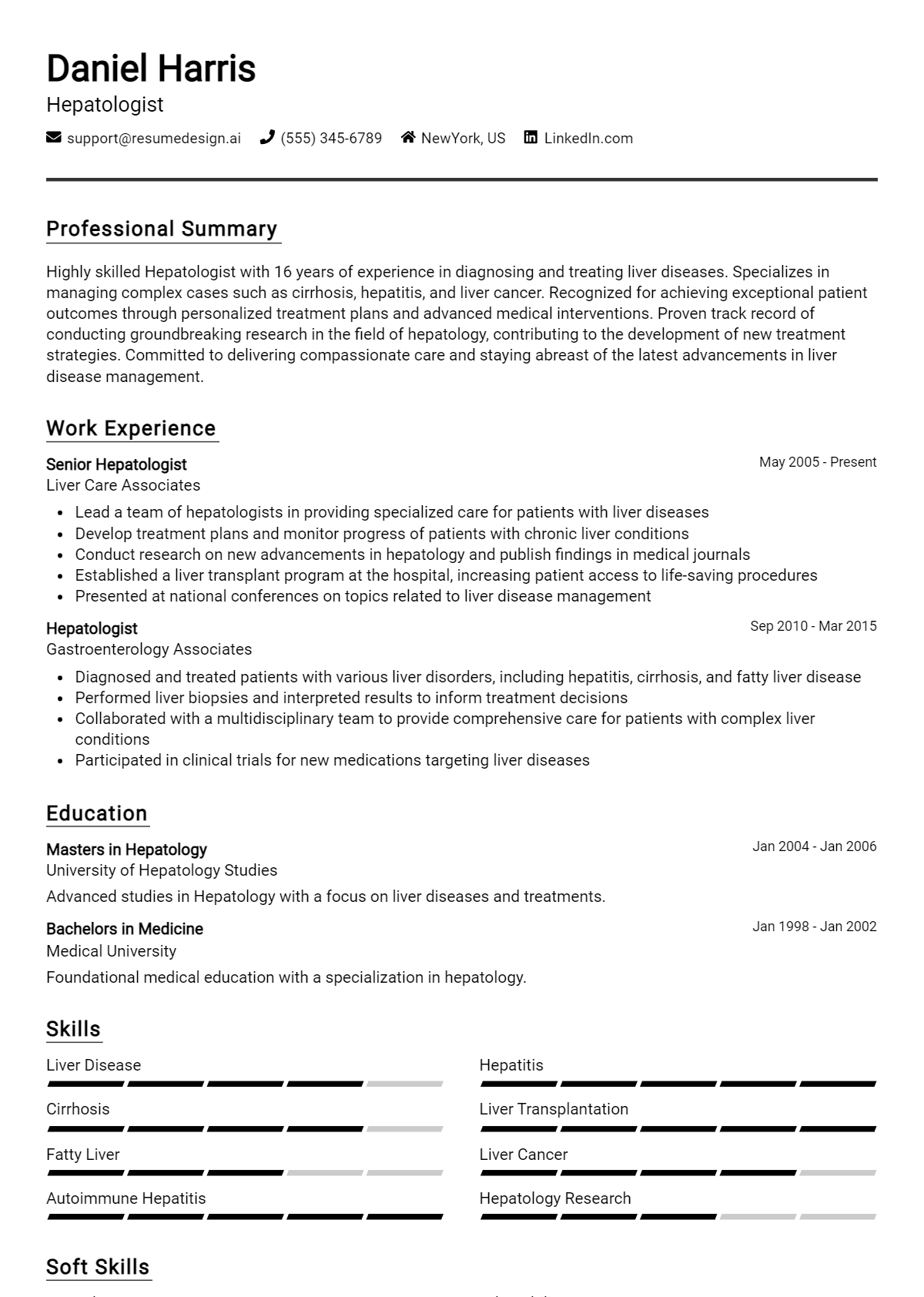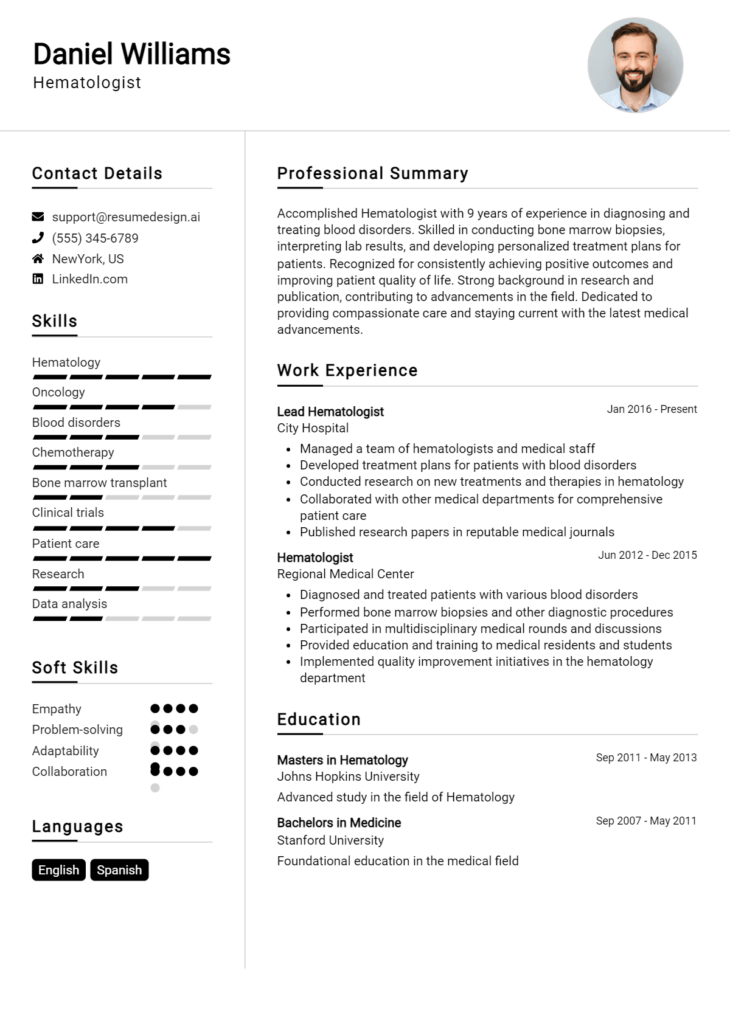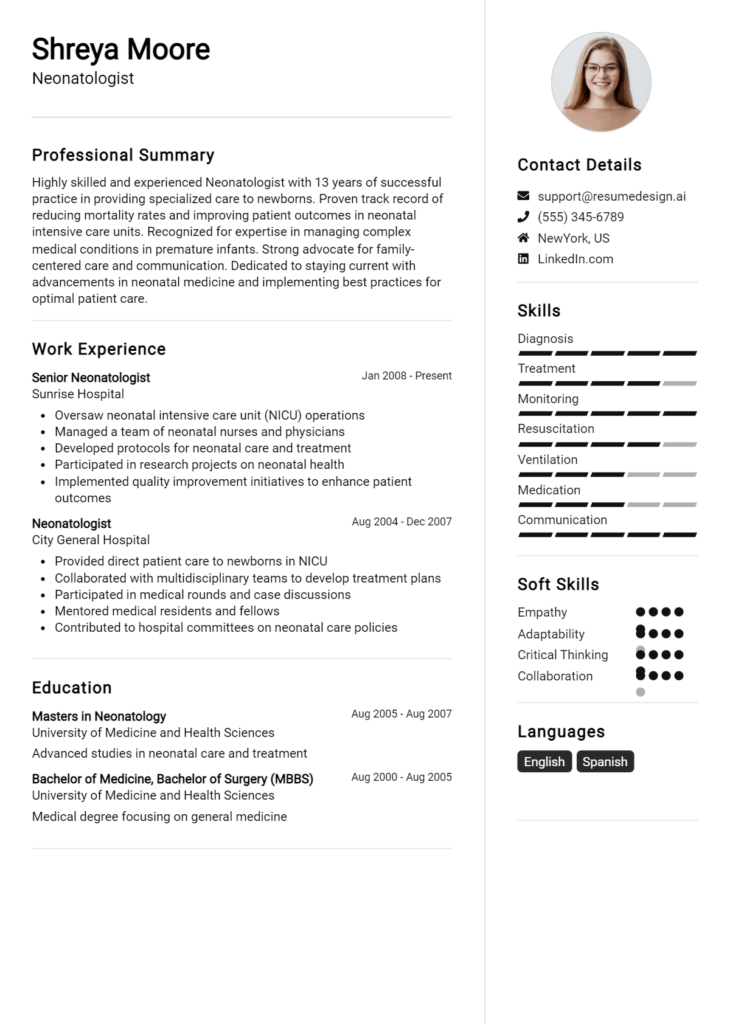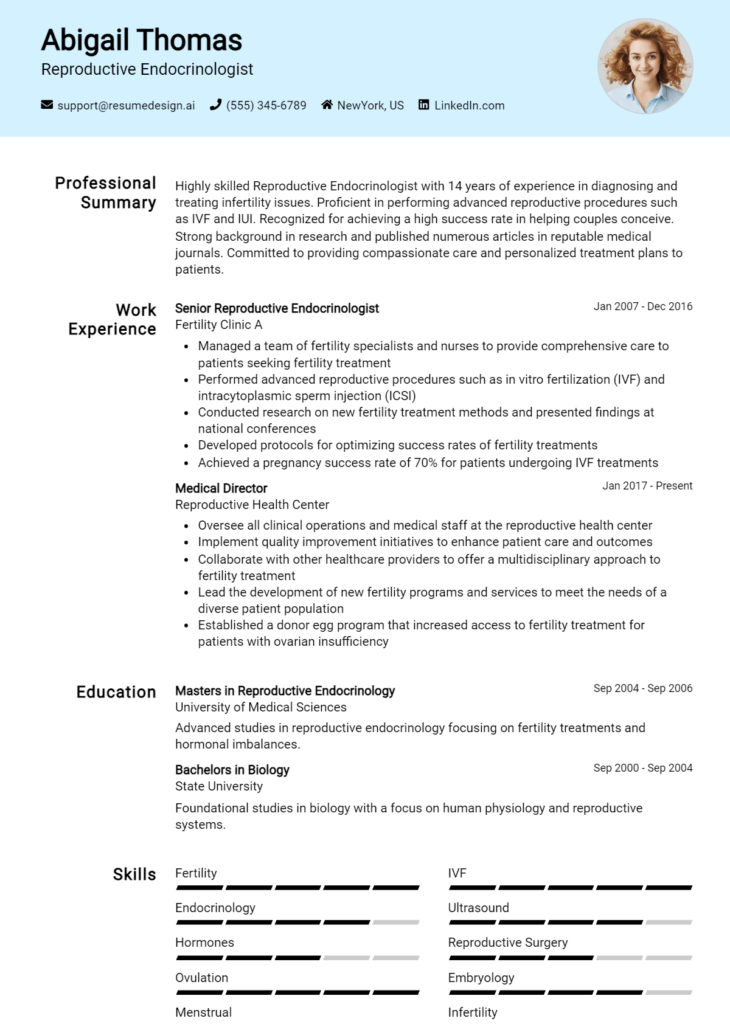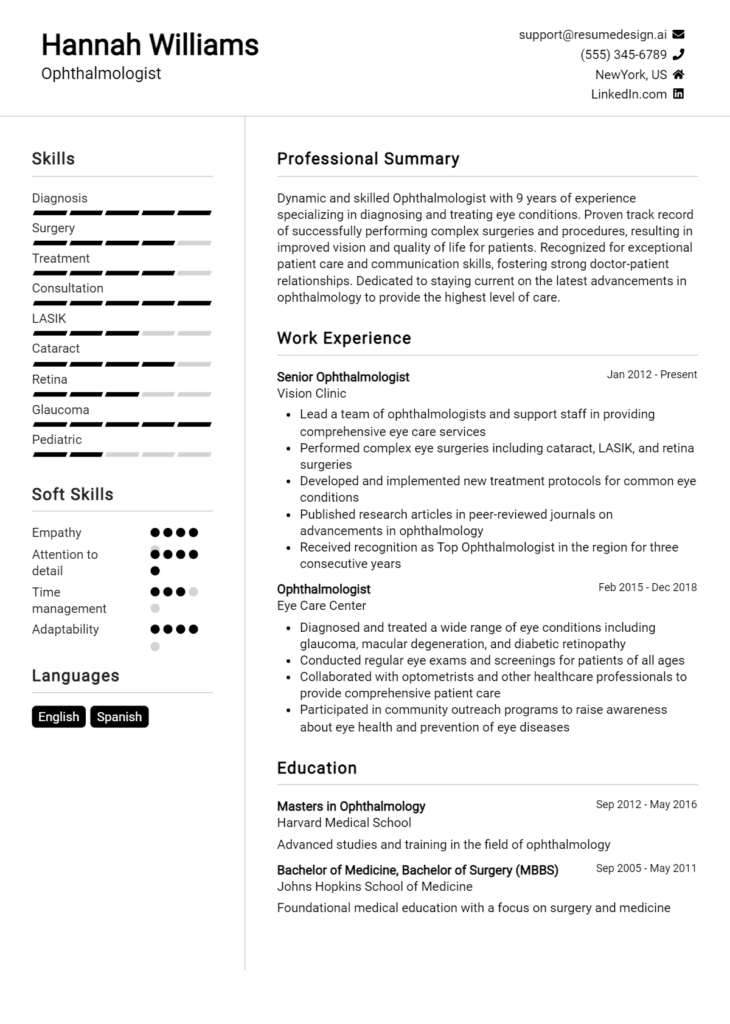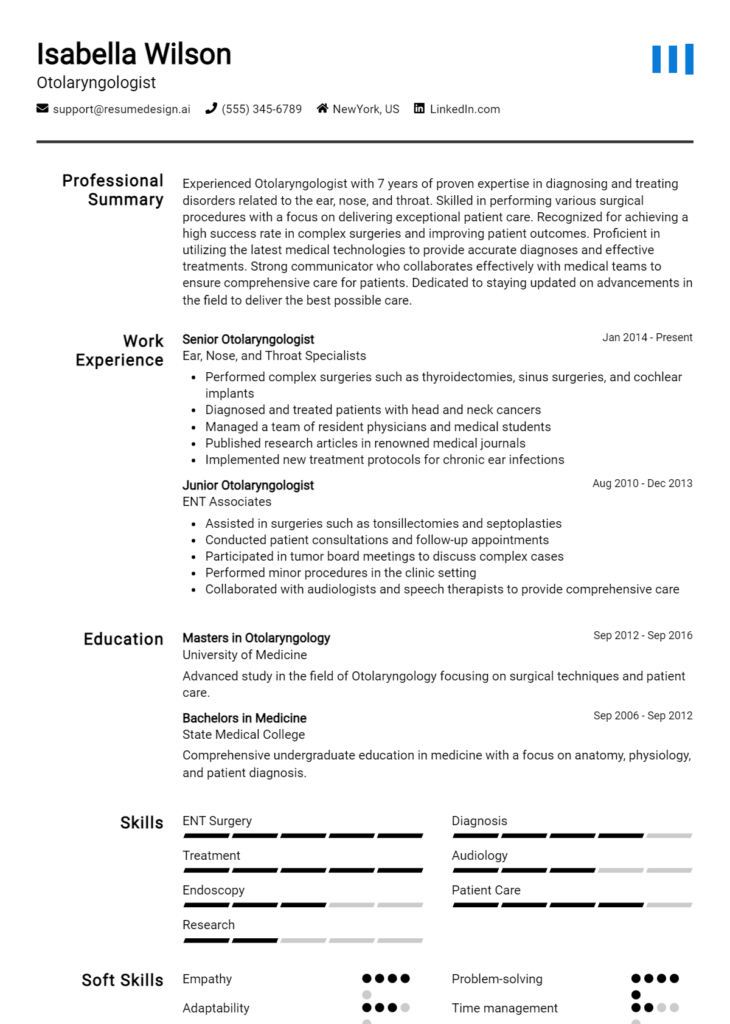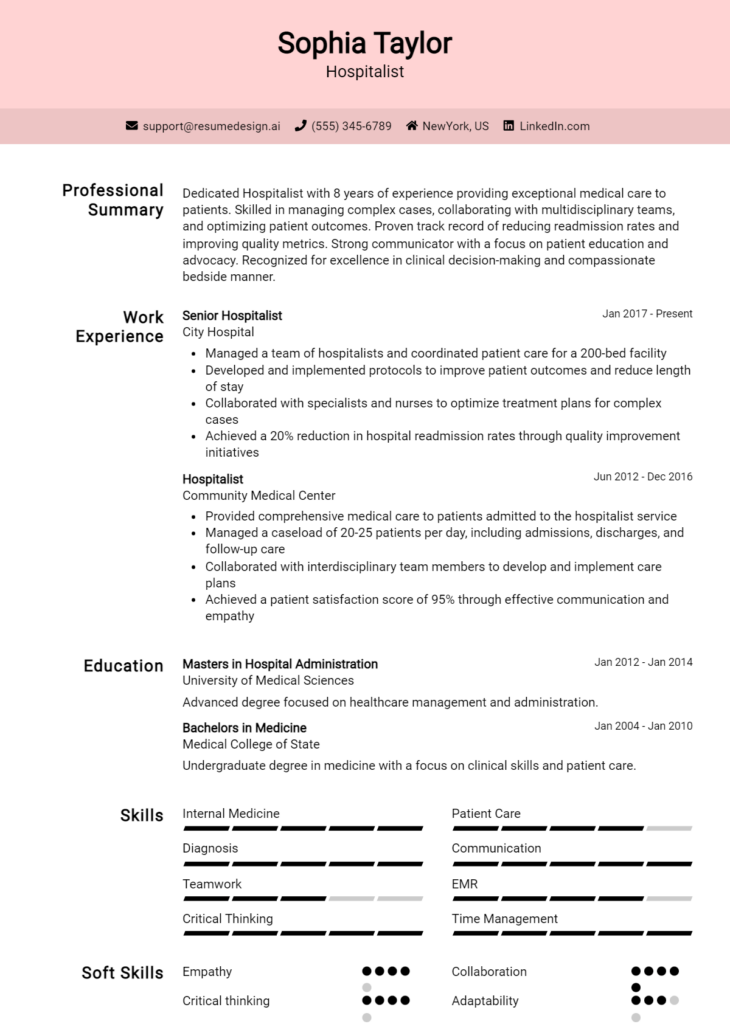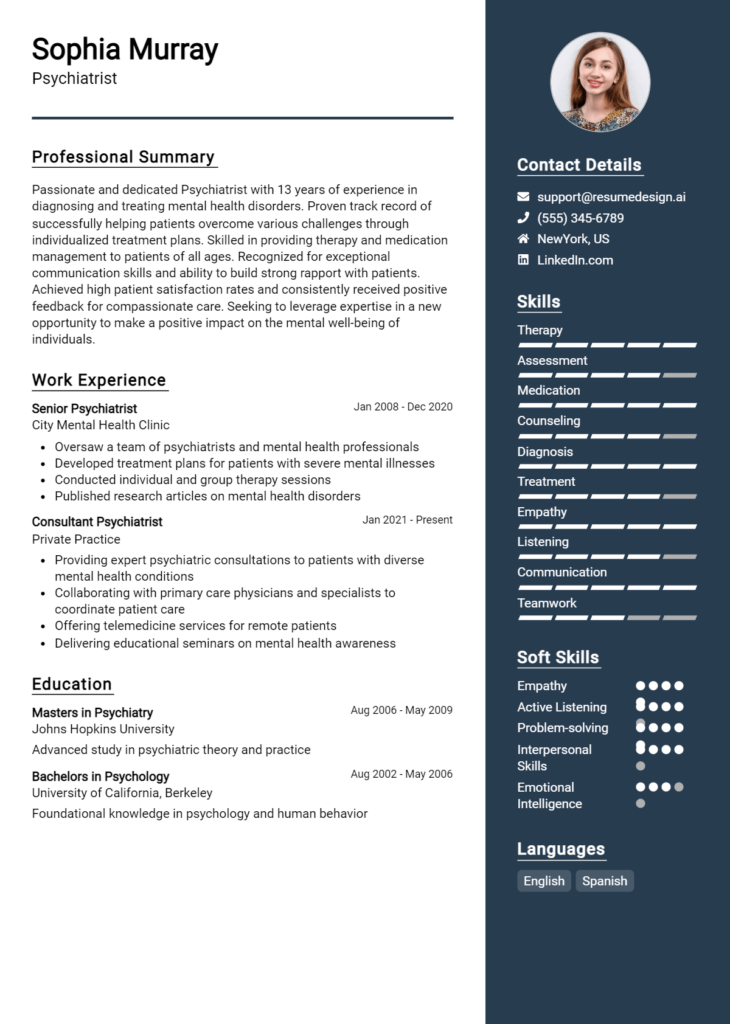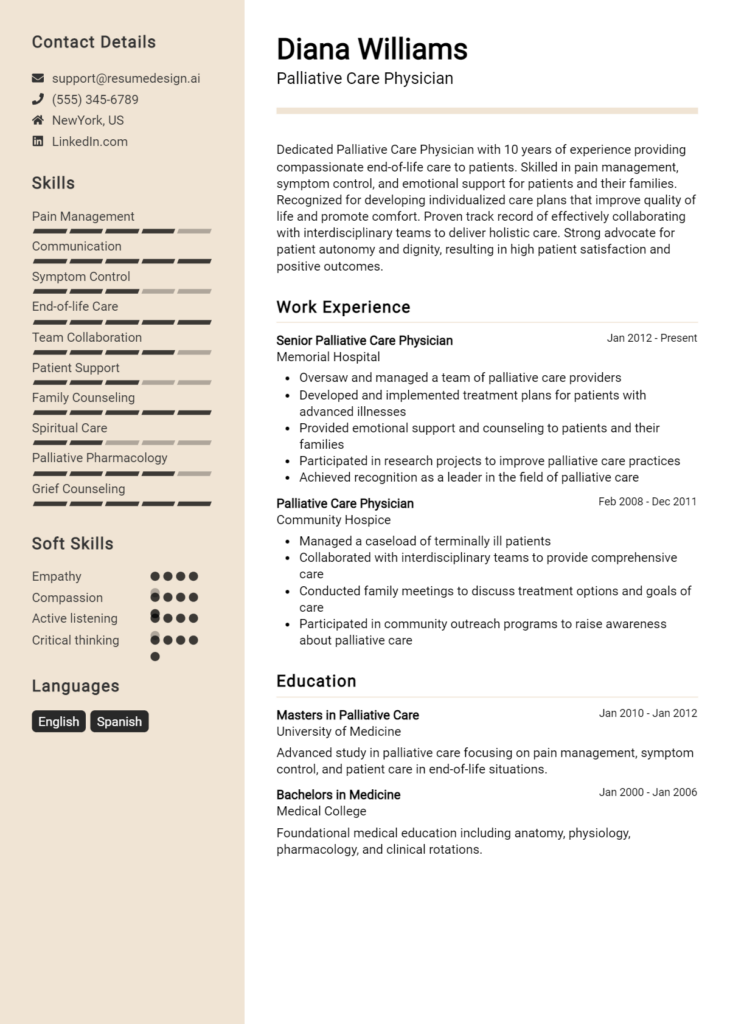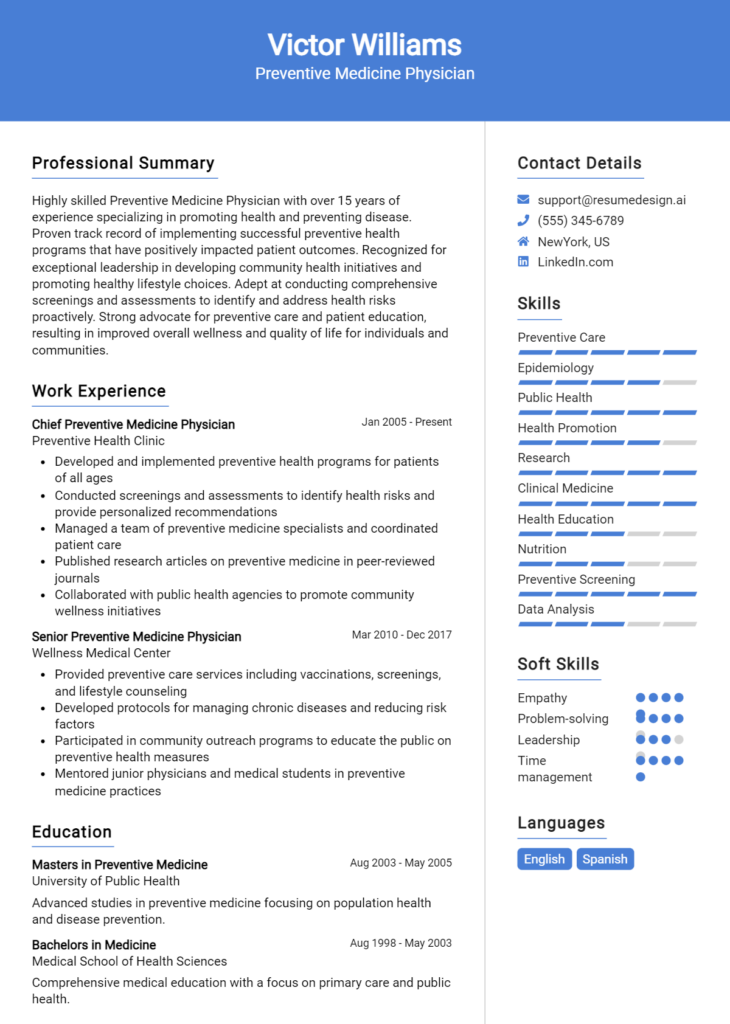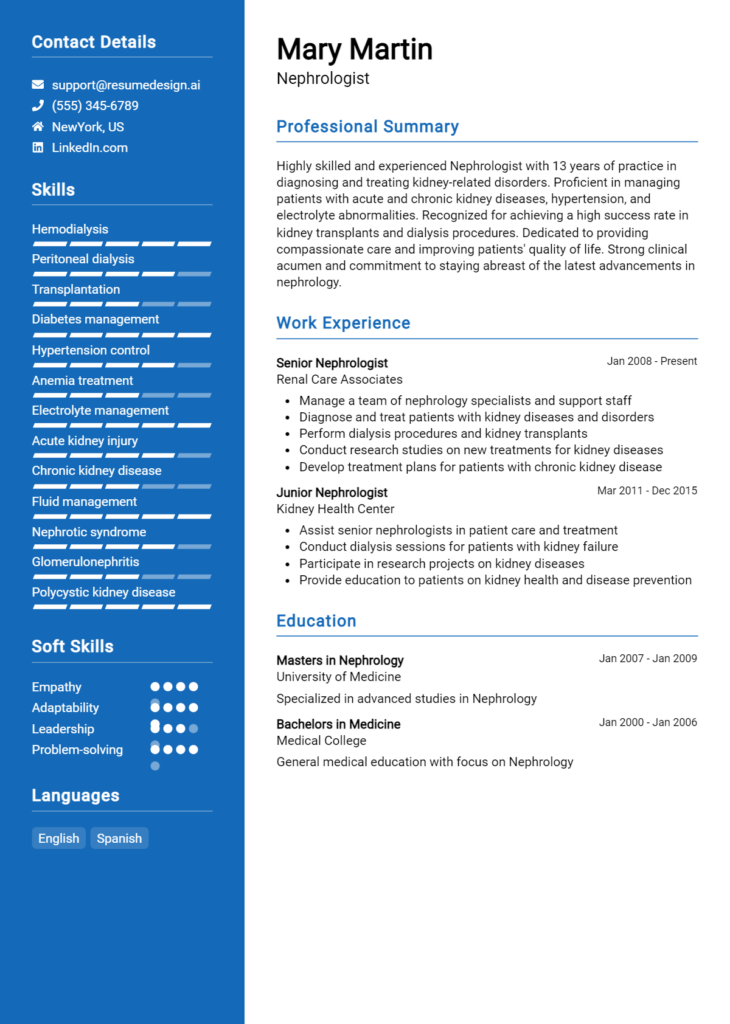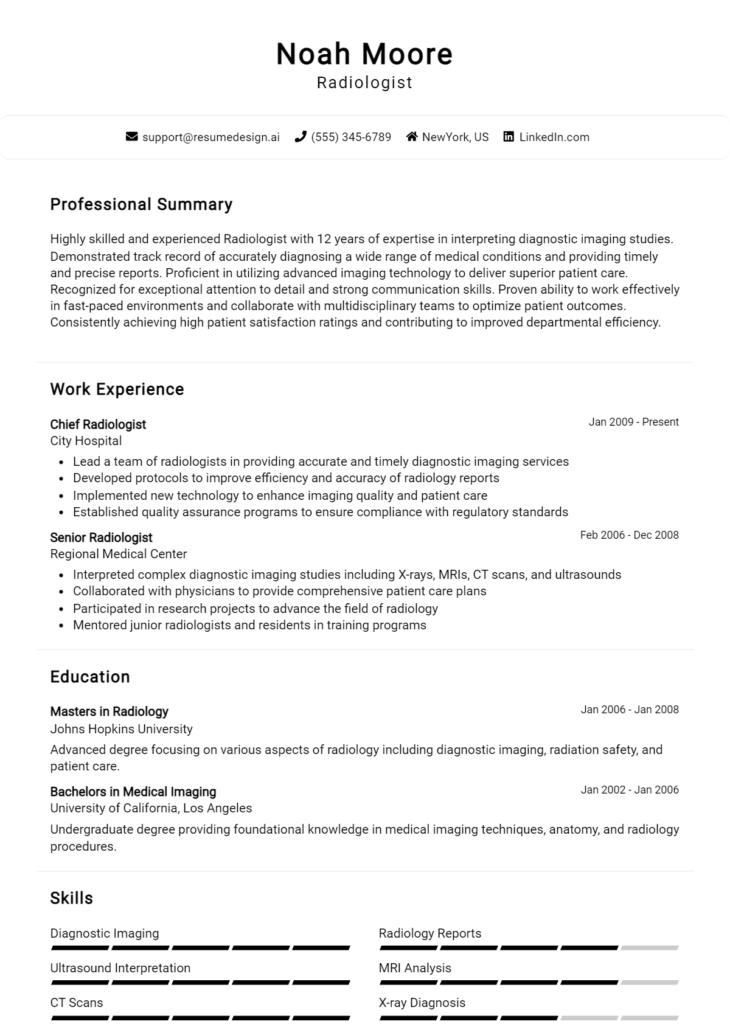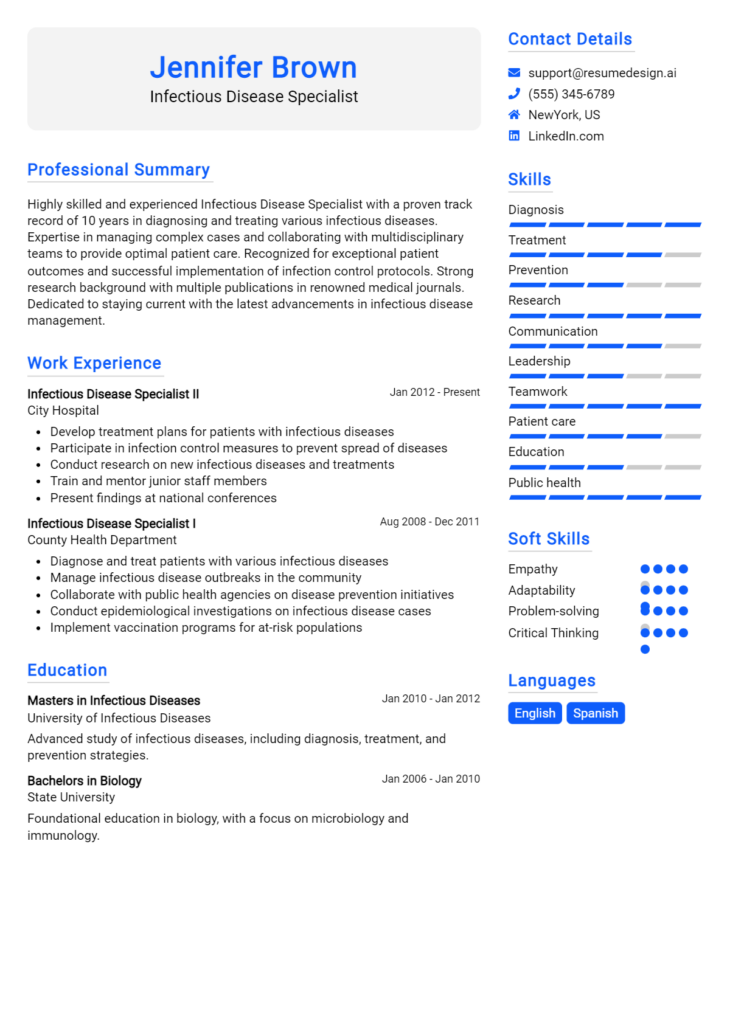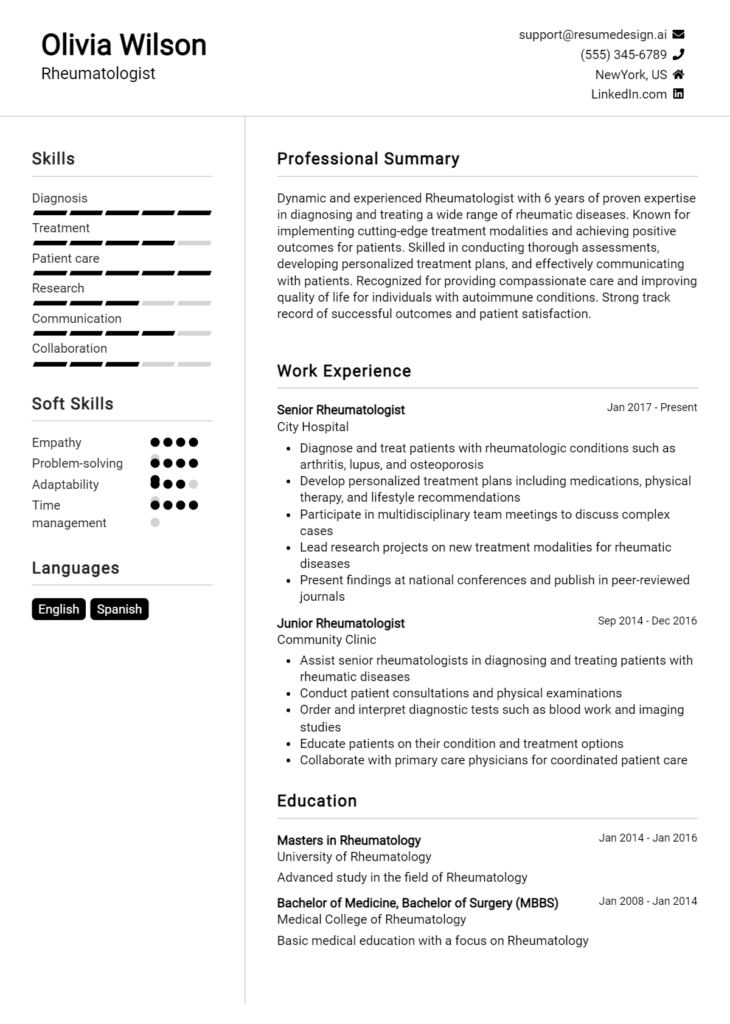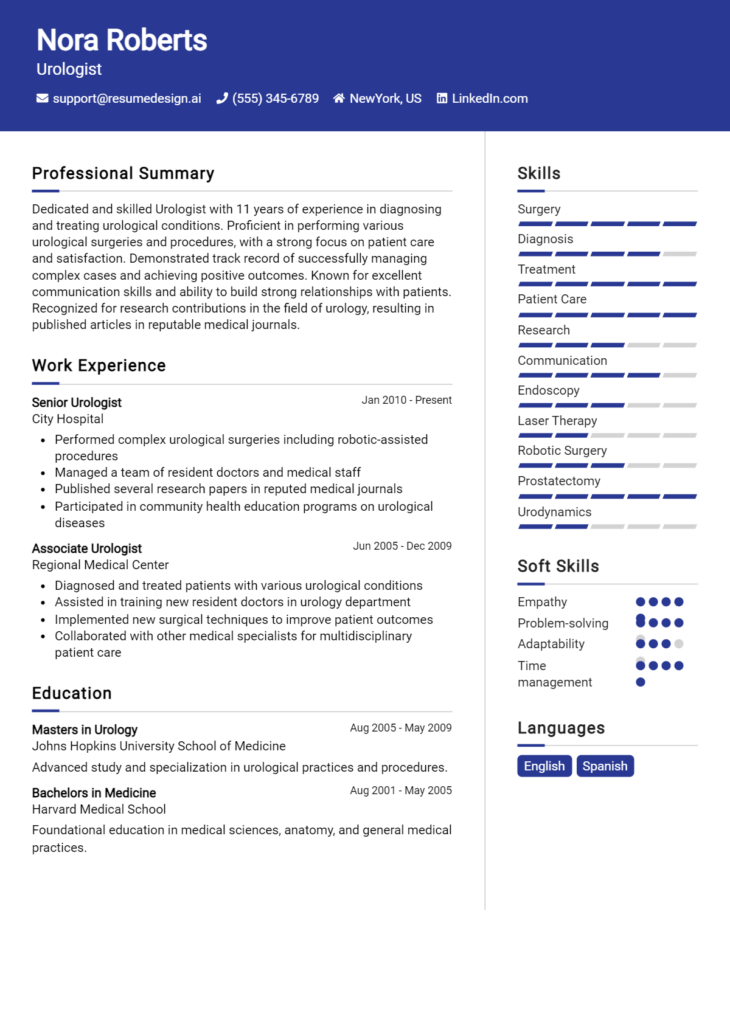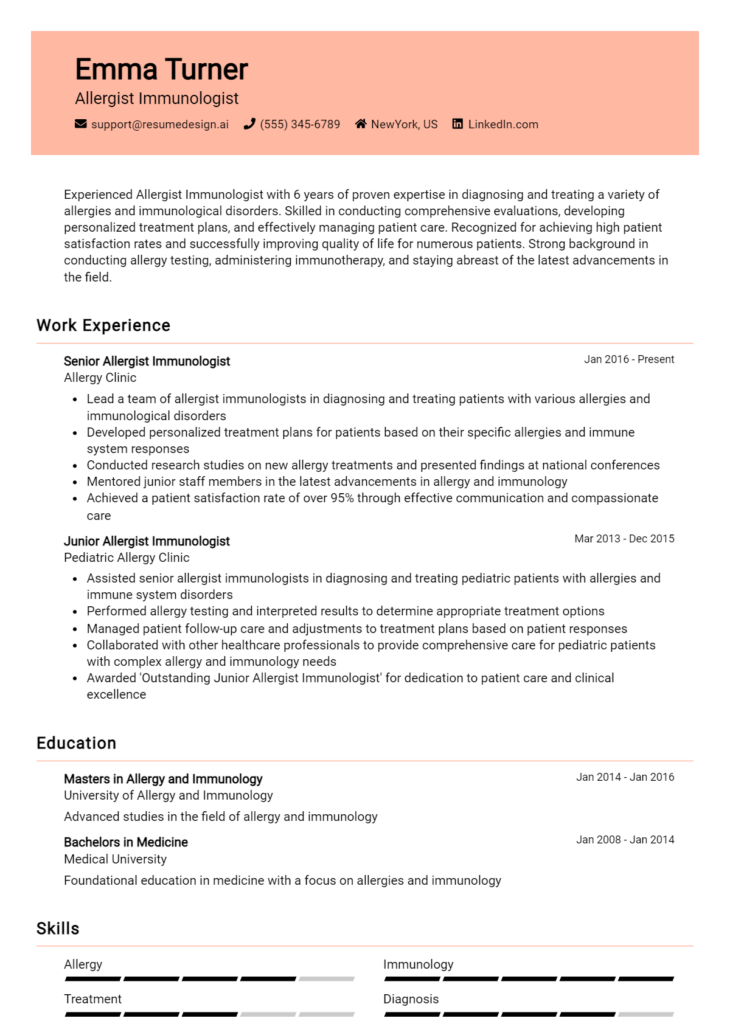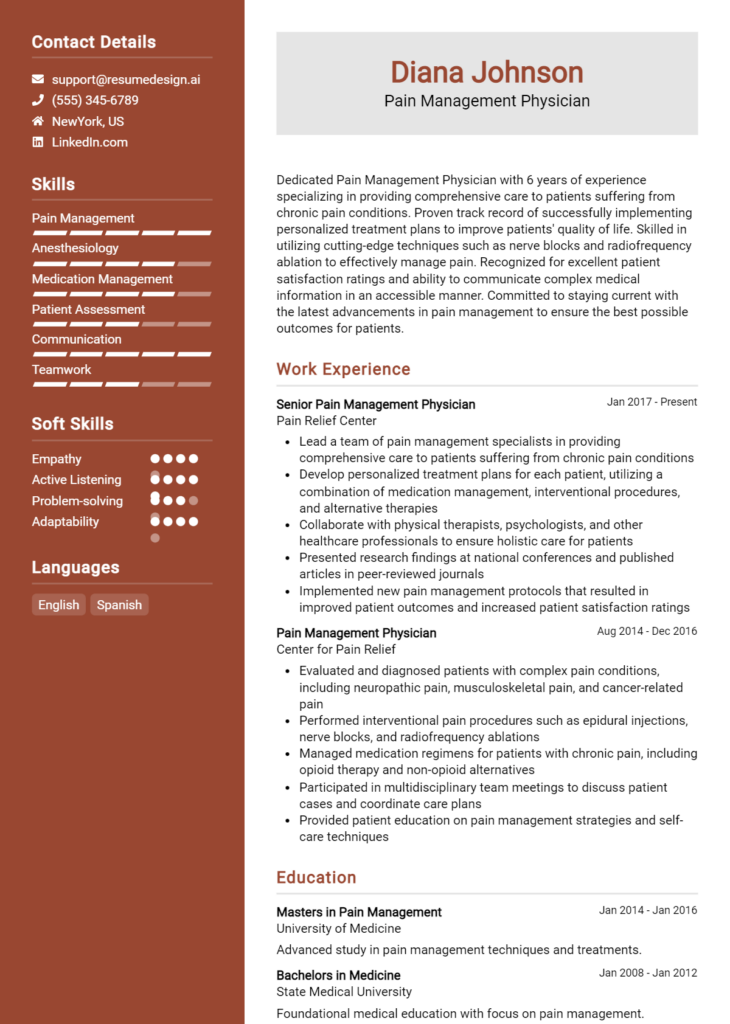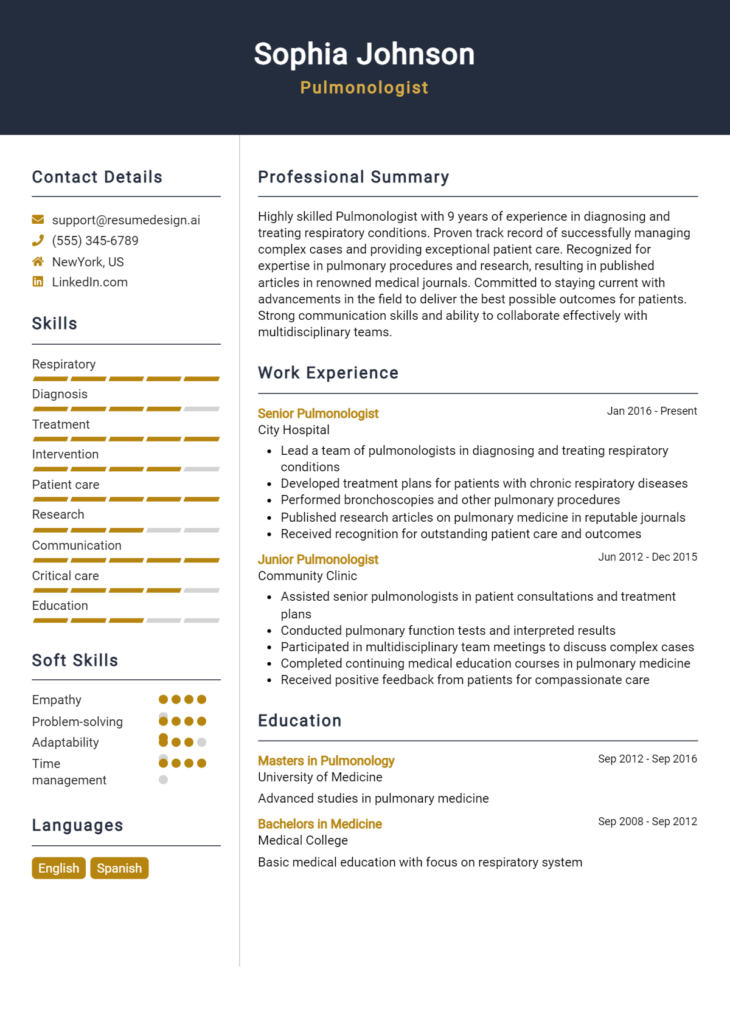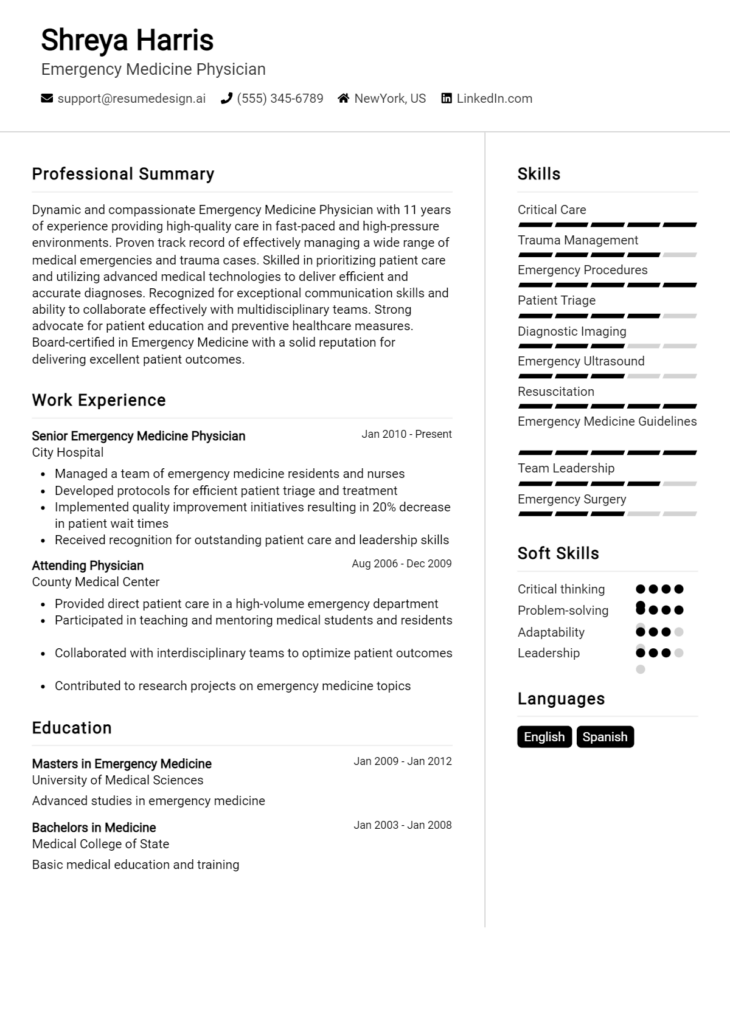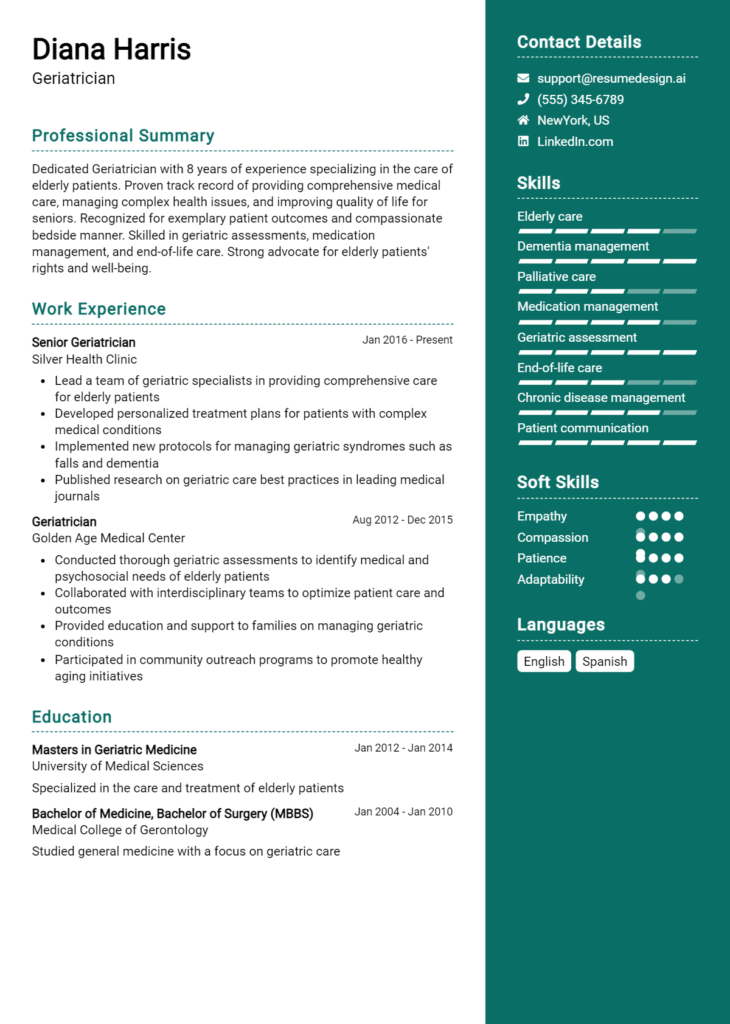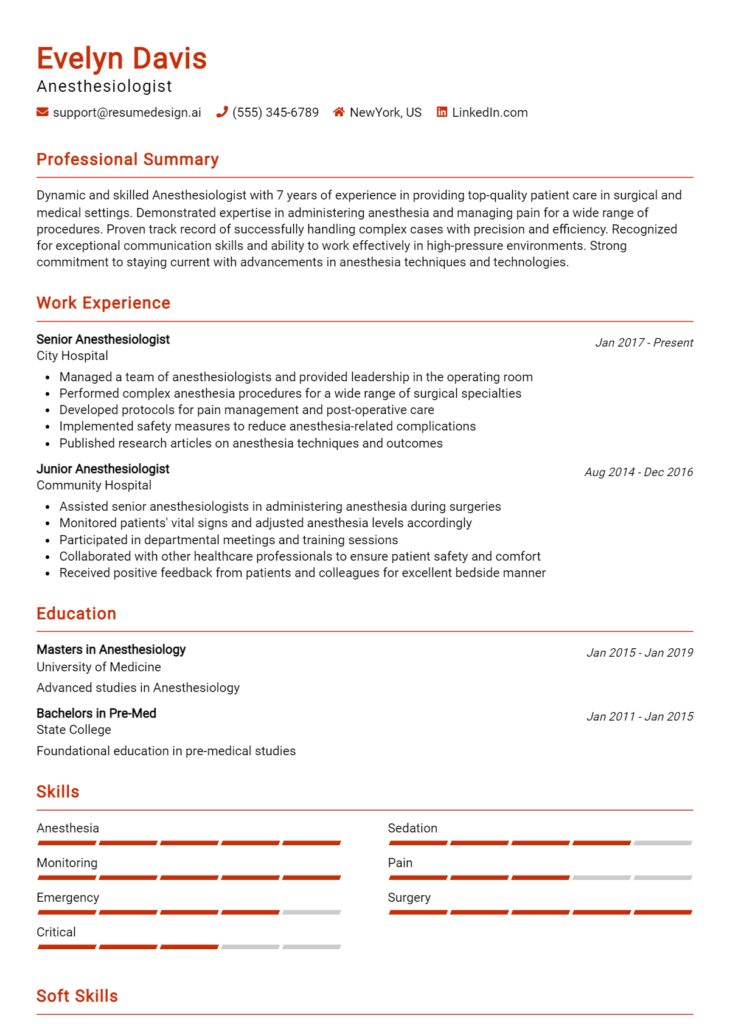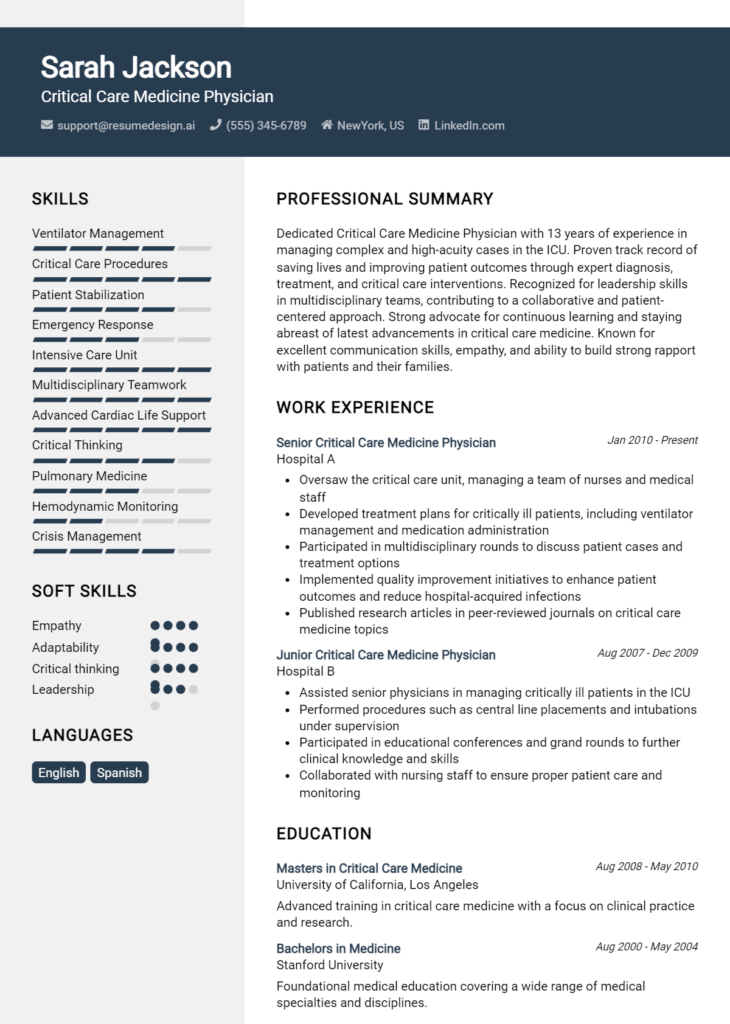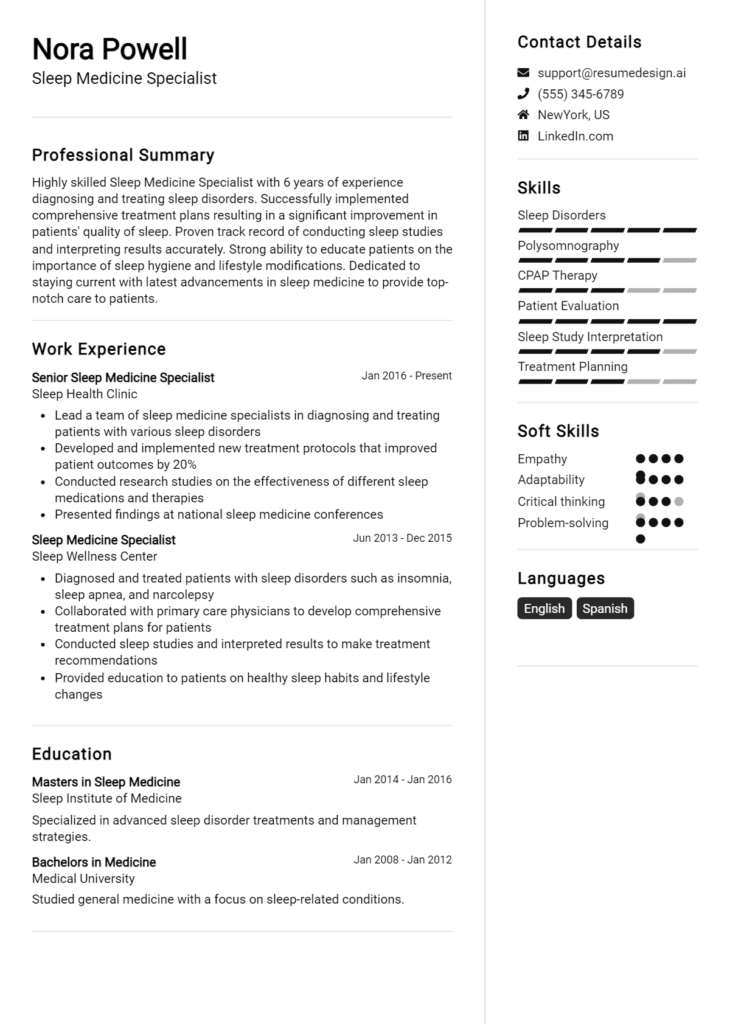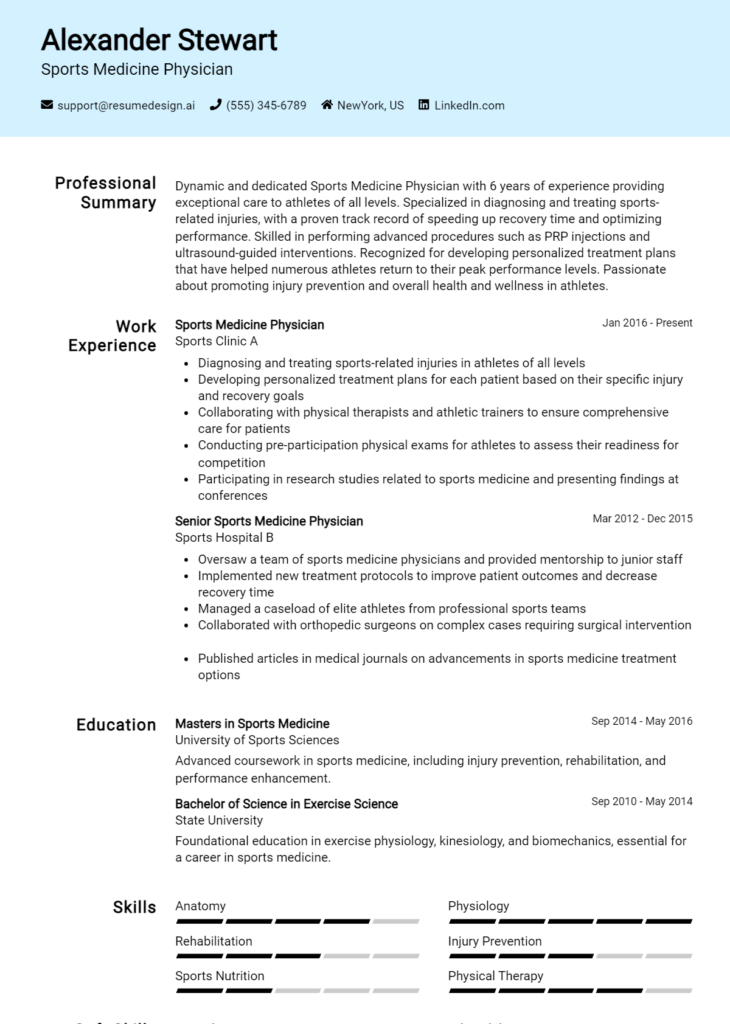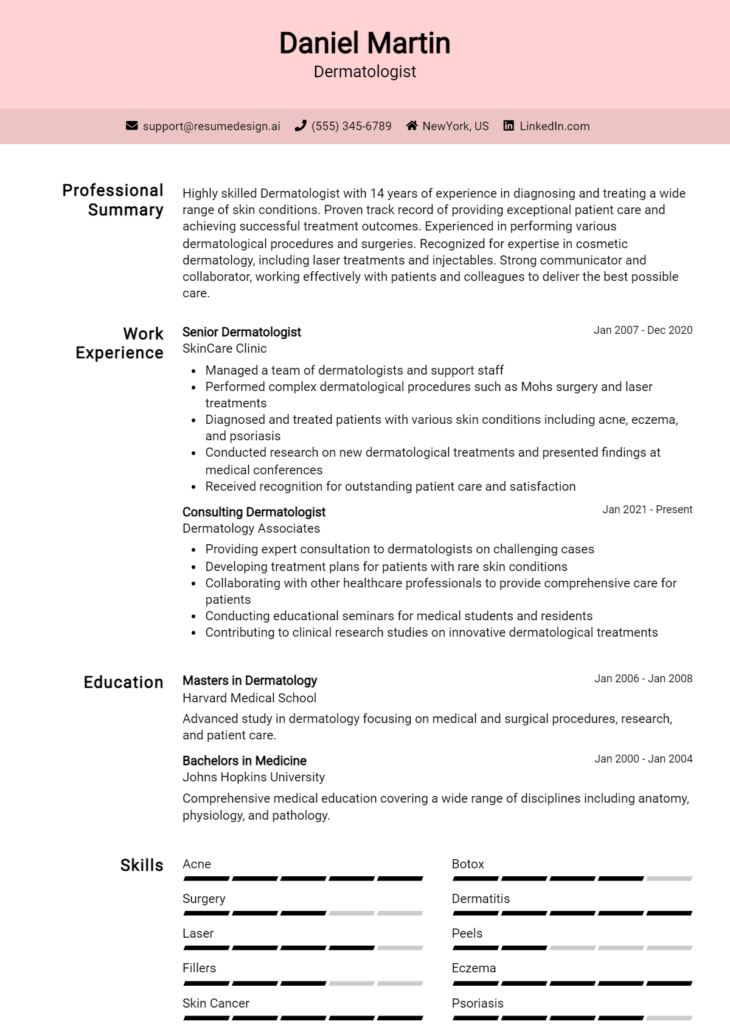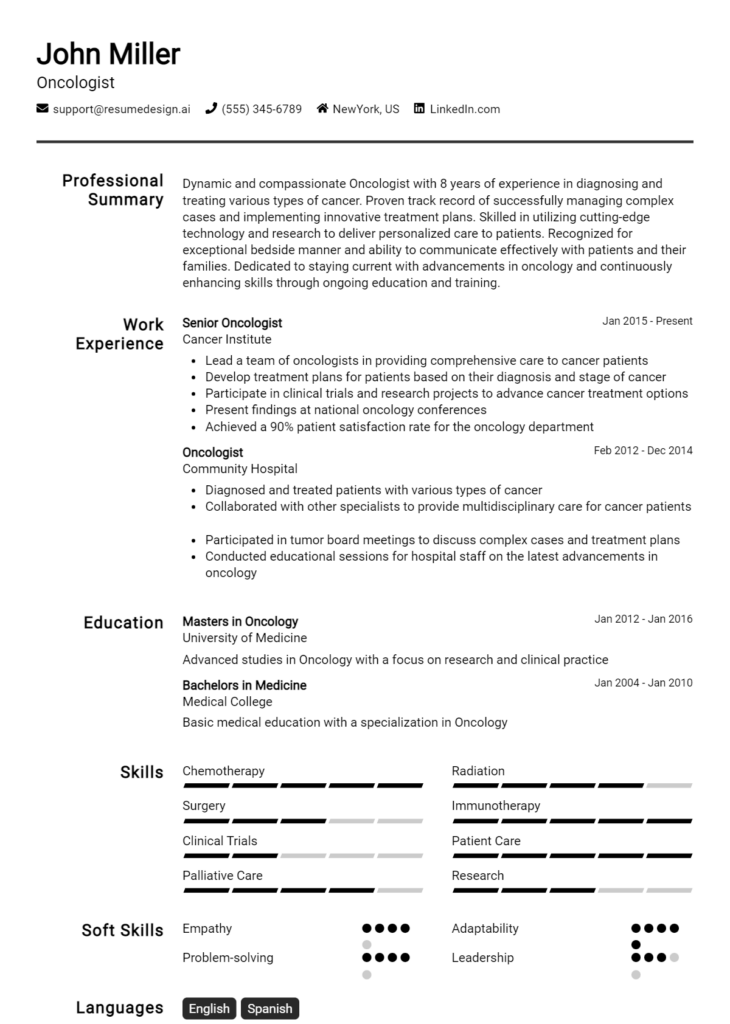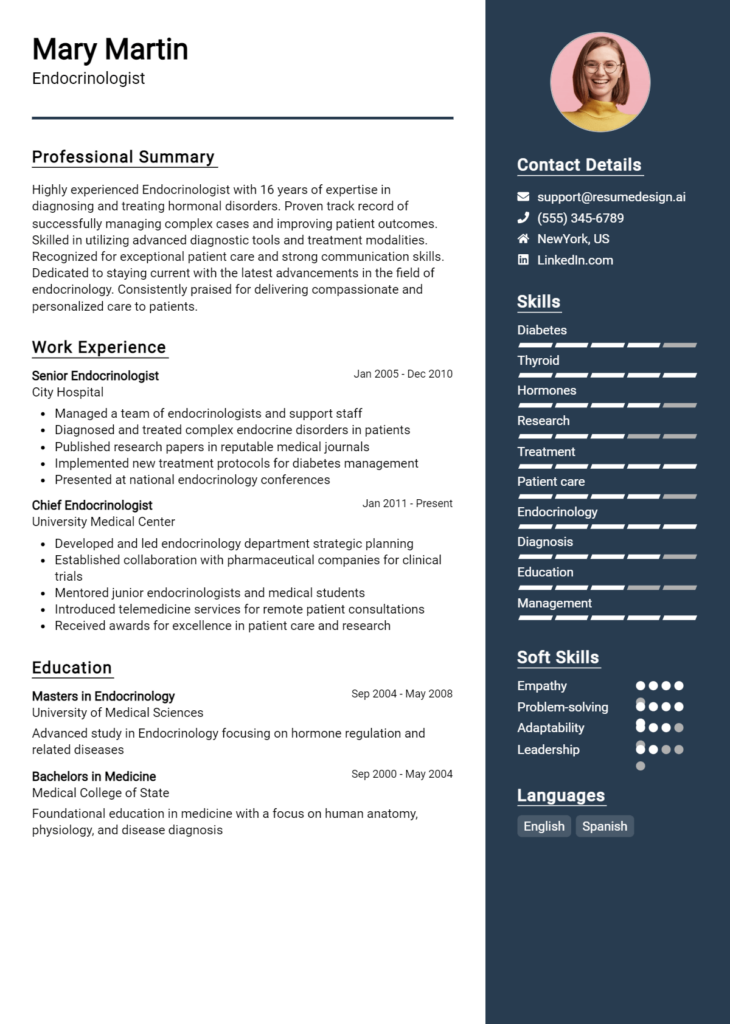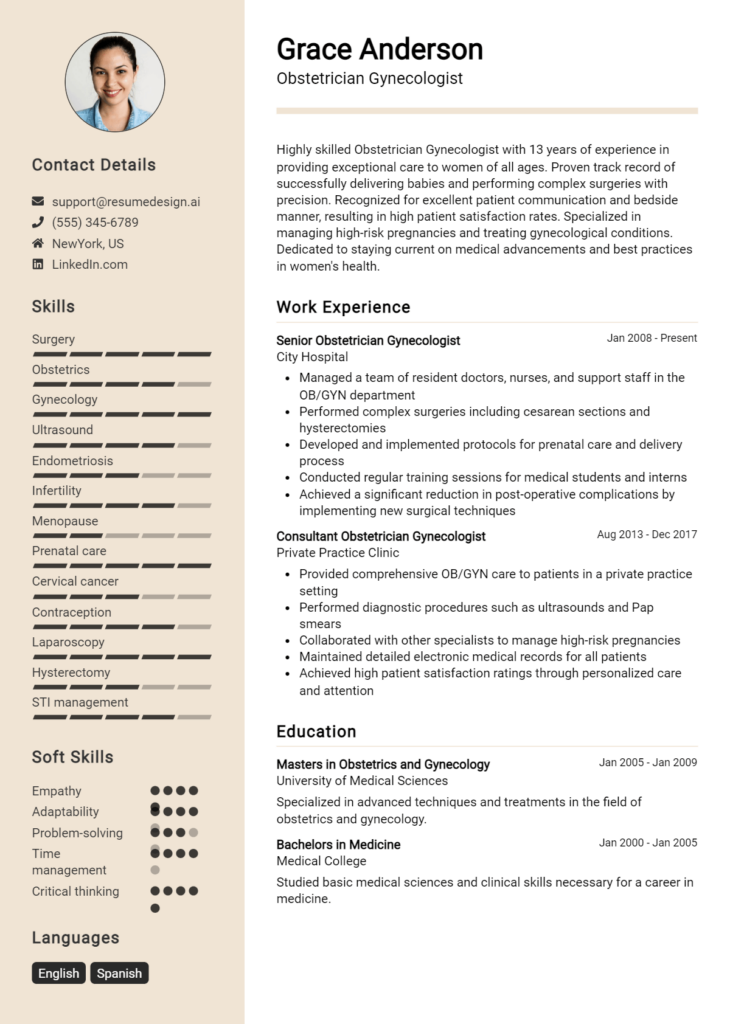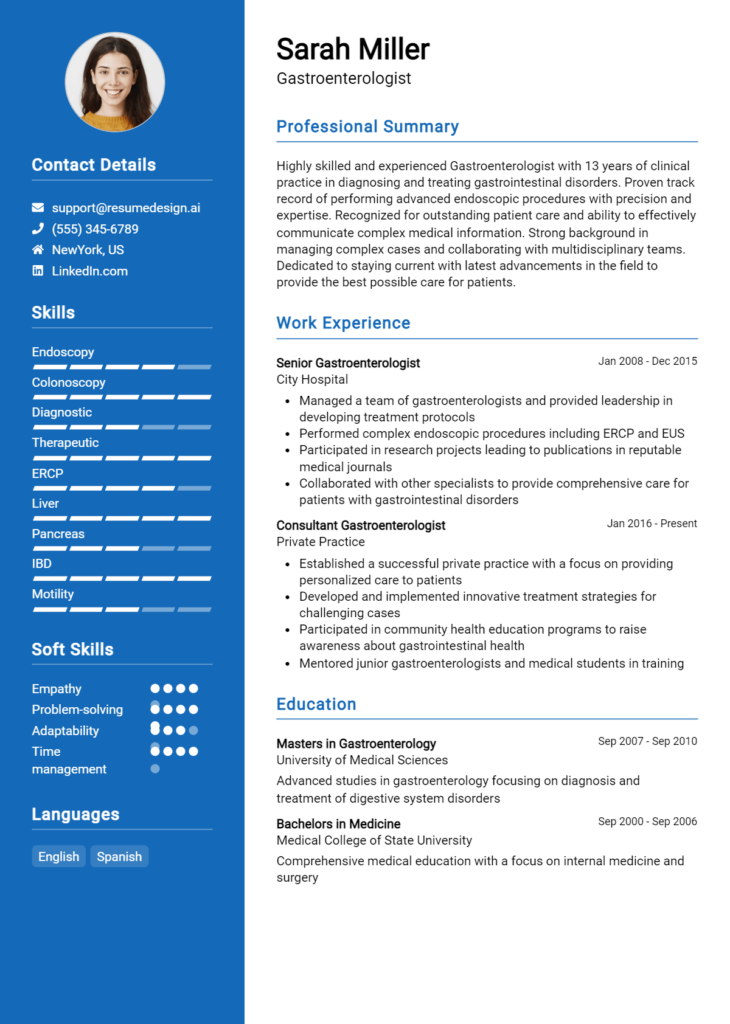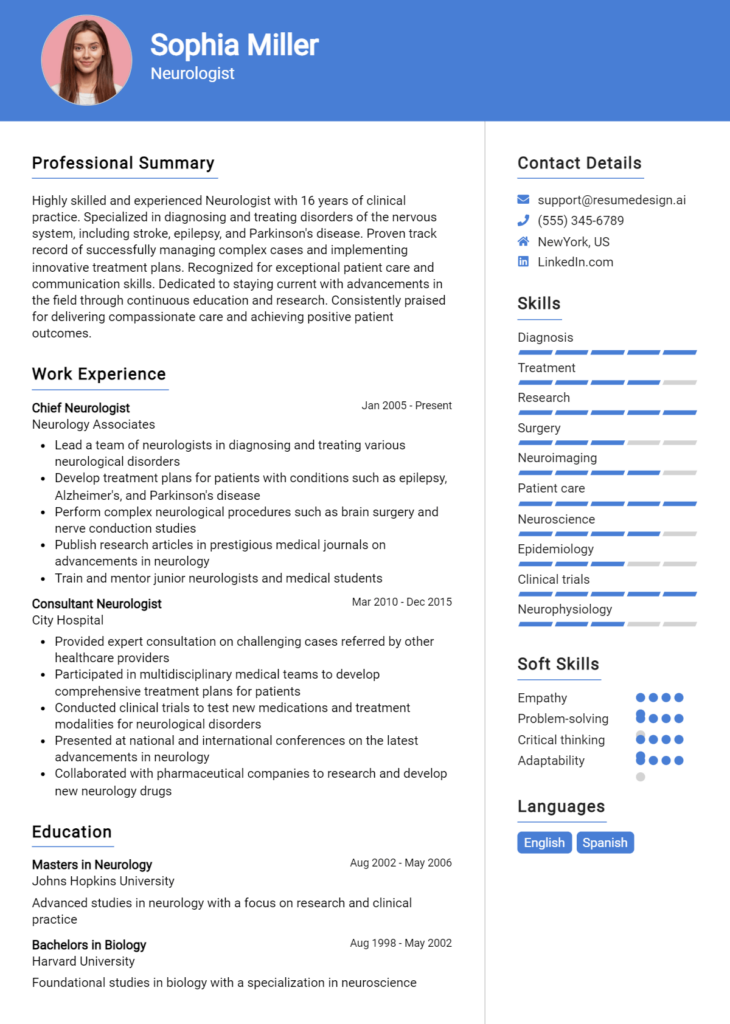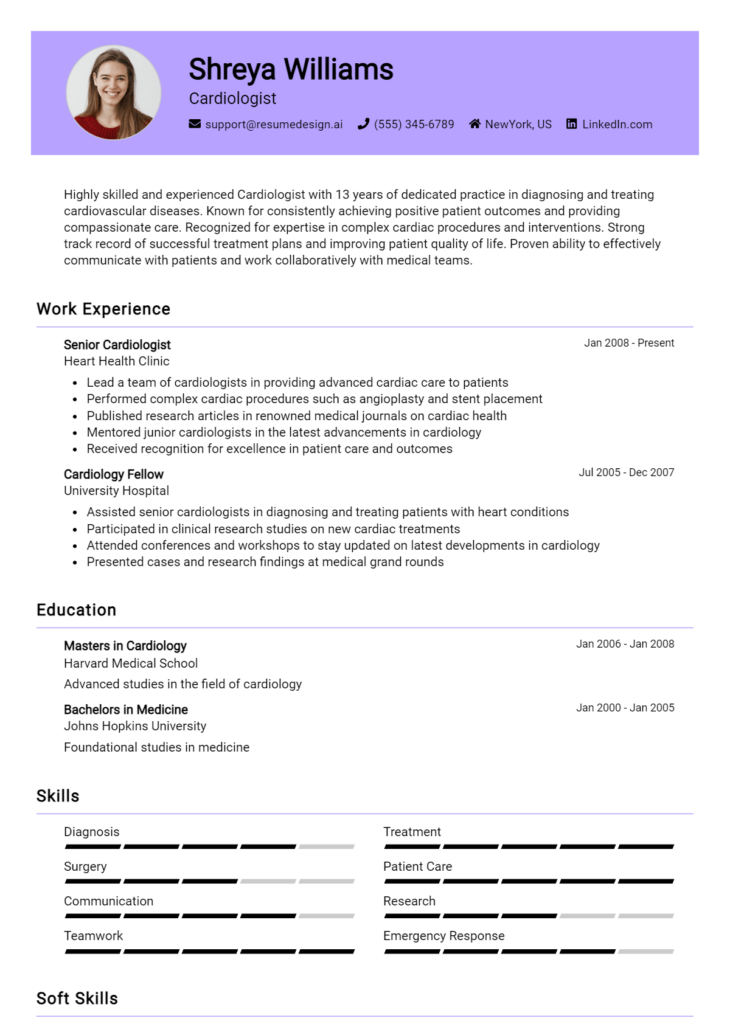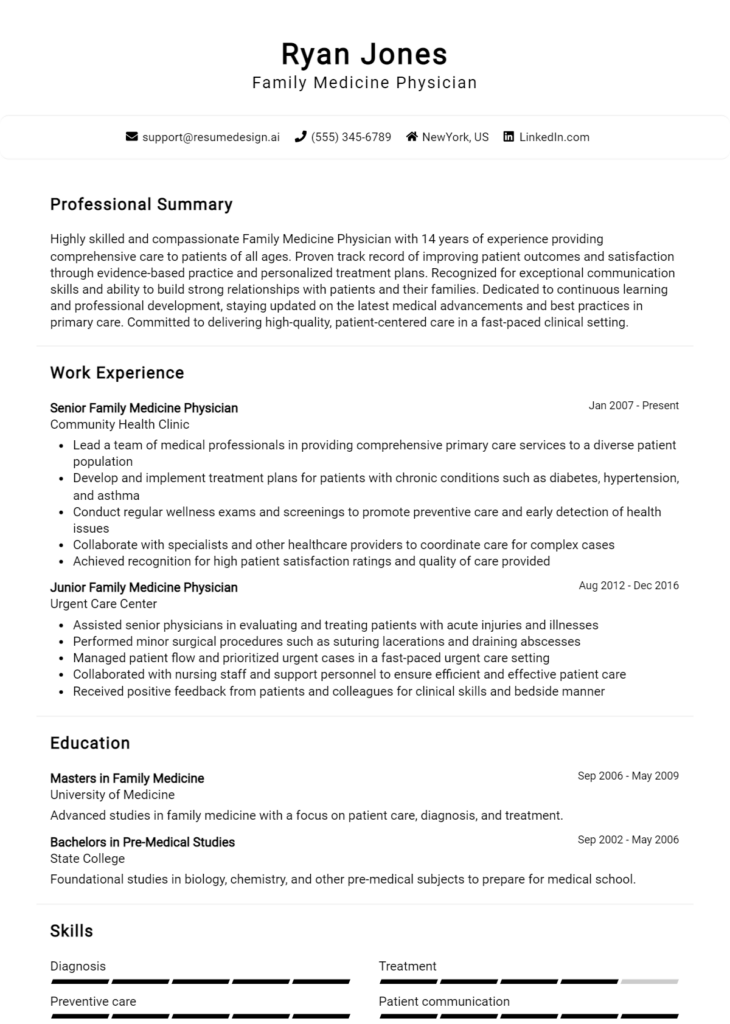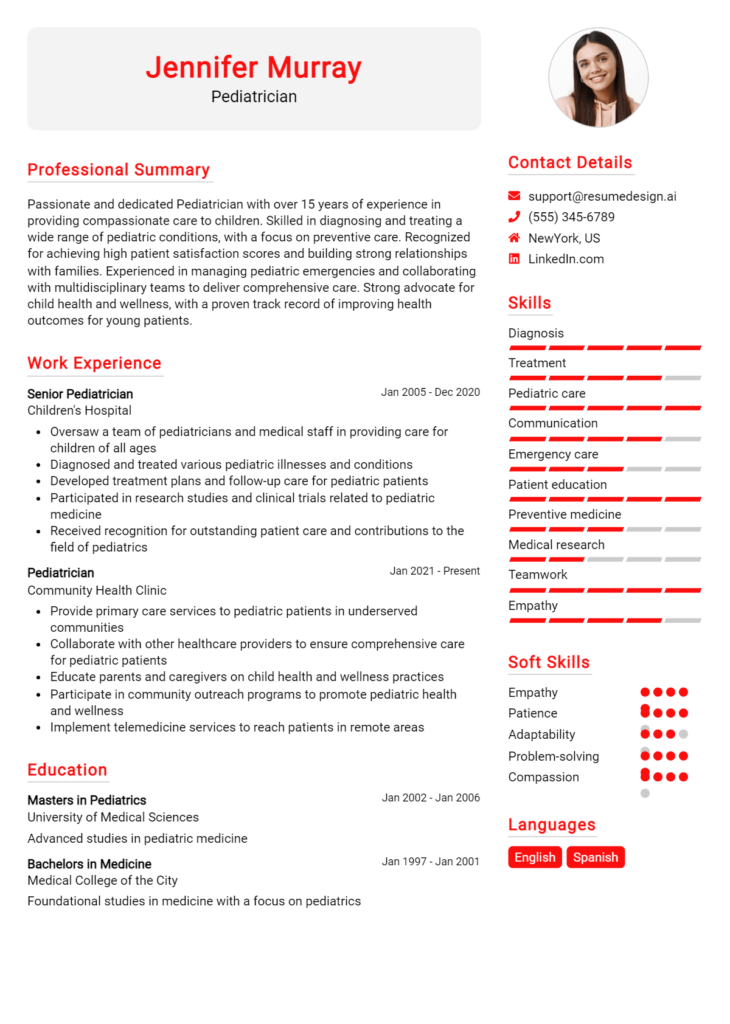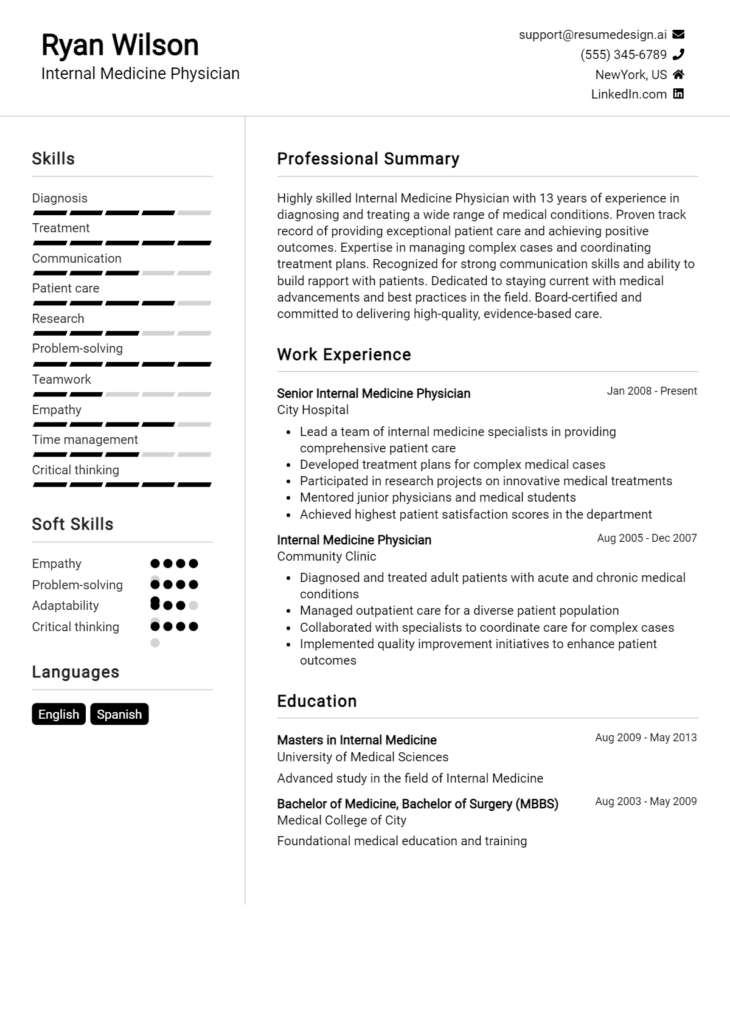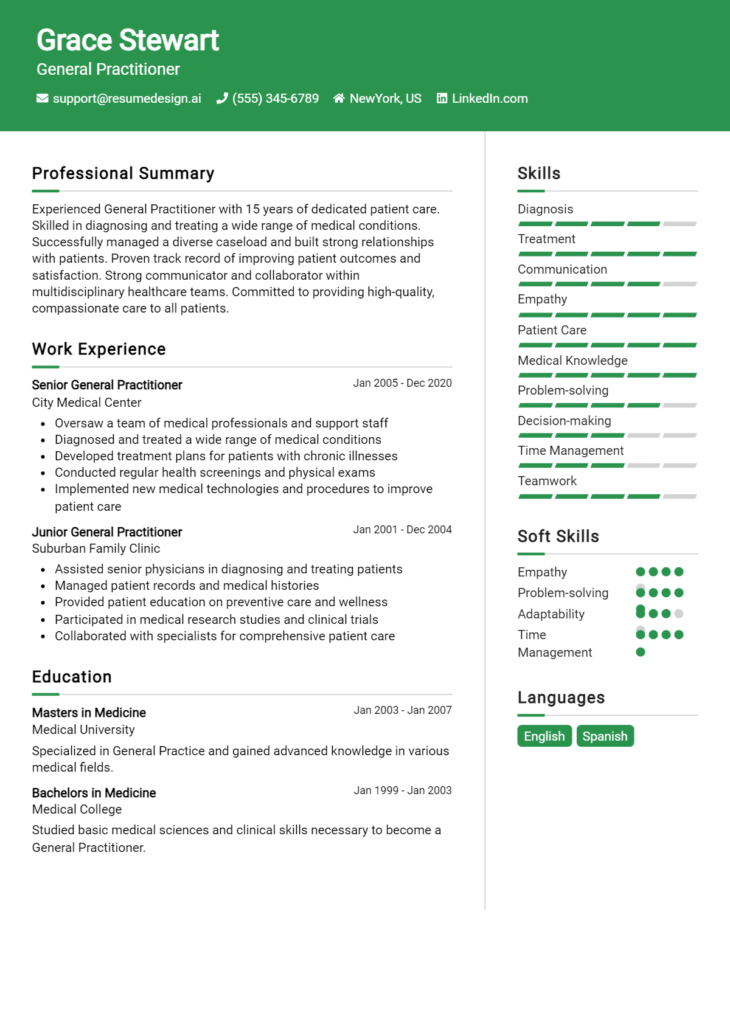Hepatologist Core Responsibilities
A Hepatologist specializes in diagnosing and treating liver diseases, requiring a blend of technical, operational, and problem-solving skills. They collaborate across various departments, such as gastroenterology and oncology, to ensure comprehensive patient care. Key responsibilities include interpreting lab results, performing liver biopsies, and developing treatment plans. Proficiency in patient communication and data analysis is crucial for effective decision-making. A well-structured resume showcasing these qualifications is vital in aligning with the organization’s goals of improving patient health outcomes.
Common Responsibilities Listed on Hepatologist Resume
- Conduct comprehensive evaluations of patients with liver diseases.
- Interpret laboratory and imaging results to inform treatment plans.
- Perform liver biopsies and other diagnostic procedures.
- Develop and implement individualized treatment protocols.
- Collaborate with multidisciplinary teams for holistic patient care.
- Educate patients on liver health and disease management.
- Stay updated on advancements in hepatology and related research.
- Manage chronic liver conditions, including cirrhosis and hepatitis.
- Monitor and adjust treatments based on patient responses.
- Participate in clinical trials and research initiatives.
- Document patient progress and treatment outcomes meticulously.
Why Resume Headlines & Titles are Important for Hepatologist
Resume headlines and titles are crucial components of a Hepatologist's resume, serving as the first impression that candidates make on hiring managers. A strong headline or title can immediately grab attention and effectively summarize a candidate's key qualifications in a single impactful phrase. It should be concise, relevant, and directly aligned with the specific job being applied for, allowing hiring managers to quickly assess the candidate's suitability for the role. In a competitive job market, a well-crafted headline can distinguish a candidate from others, making it an essential element in the job application process.
Best Practices for Crafting Resume Headlines for Hepatologist
- Keep it concise: Aim for a headline that is no longer than 10-12 words.
- Be role-specific: Tailor your headline to reflect your expertise as a Hepatologist.
- Highlight key qualifications: Include relevant skills or certifications that set you apart.
- Use action words: Start with strong verbs to convey your impact and achievements.
- Avoid jargon: Use clear language that is easily understood by hiring managers.
- Reflect your experience level: Indicate your years of experience or areas of specialization.
- Incorporate keywords: Use terminology from the job description to align with employer expectations.
- Make it attention-grabbing: Use a compelling statement that piques interest.
Example Resume Headlines for Hepatologist
Strong Resume Headlines
Board-Certified Hepatologist with 10 Years of Experience in Liver Disease Management
Expert Hepatologist Specializing in Advanced Hepatic Therapies and Patient Care
Dedicated Hepatologist with Proven Track Record in Clinical Research and Patient Outcomes
Weak Resume Headlines
Hepatologist Looking for Job
Experienced Doctor in Medicine
The strong headlines are effective because they immediately communicate the candidate's specific expertise, years of experience, and distinct qualifications that align with the role of a Hepatologist. They are tailored, impactful, and focused on what the employer seeks. In contrast, the weak headlines fail to impress as they are vague and generic, lacking specific details that would attract attention or demonstrate the candidate's capabilities. They do not convey a clear message or value proposition, making it difficult for hiring managers to assess the candidate's fit for the position.
Writing an Exceptional Hepatologist Resume Summary
A resume summary for a Hepatologist is essential in making a strong first impression on hiring managers. It serves as a quick introduction to the candidate's key skills, extensive experience, and notable accomplishments, all of which are critical in this specialized medical field. A well-crafted summary not only succinctly showcases the candidate's qualifications but also aligns them with the specific requirements of the job they are applying for. By presenting an impactful and concise overview, candidates can capture the attention of potential employers and set the stage for further discussion in the interview process.
Best Practices for Writing a Hepatologist Resume Summary
- Quantify Achievements: Use numbers to highlight successes, such as patient outcomes, research contributions, or improvements in procedures.
- Focus on Skills: Identify and emphasize key skills relevant to the role, including diagnostic abilities, treatment planning, and patient management.
- Tailor for the Job Description: Customize the summary to reflect the specific requirements and responsibilities outlined in the job posting.
- Keep it Concise: Aim for 2-4 sentences that deliver maximum impact without unnecessary details.
- Highlight Relevant Experience: Mention specific areas of expertise or particular conditions treated that align with the prospective employer's focus.
- Showcase Professional Development: Include certifications or additional training that enhance your qualifications as a Hepatologist.
- Use Action-Oriented Language: Utilize strong verbs to convey confidence and proactivity in your practice.
- Maintain Professional Tone: Ensure the summary reflects a high level of professionalism appropriate for the medical field.
Example Hepatologist Resume Summaries
Strong Resume Summaries
Board-certified Hepatologist with over 10 years of experience in diagnosing and managing liver diseases, including cirrhosis and hepatitis. Successfully improved patient recovery rates by 30% through the implementation of evidence-based treatment protocols.
Compassionate Hepatologist with a proven track record of enhancing patient satisfaction scores by 25% in a high-volume clinic. Expertise in advanced liver disease management and a strong background in clinical research, contributing to 5 peer-reviewed publications.
Dedicated Hepatologist with extensive experience in transplant hepatology. Skilled in performing over 100 liver biopsies annually, achieving a 98% patient satisfaction rate and reducing procedure times by 15% through innovative techniques.
Weak Resume Summaries
Experienced doctor with knowledge in liver diseases. I have worked in various healthcare settings.
Hepatologist looking for a new opportunity. I have a background in treating patients with liver issues.
The strong resume summaries effectively highlight quantifiable achievements, specific skills, and relevant experience, making them highly impactful and tailored to the Hepatologist role. Conversely, the weak summaries are vague and lack detail, failing to convey the candidate's qualifications or unique value proposition, which diminishes their chances of capturing the attention of hiring managers.
Work Experience Section for Hepatologist Resume
The work experience section of a Hepatologist's resume is a critical component that provides insight into the candidate's clinical expertise, technical skills, and leadership abilities. This section serves to showcase how the candidate has effectively managed teams, contributed to high-quality patient care, and made significant advancements in the field of hepatology. By quantifying achievements and aligning experiences with industry standards, candidates can illustrate their impact and effectiveness in prior roles, making them more appealing to potential employers.
Best Practices for Hepatologist Work Experience
- Highlight specific technical skills relevant to hepatology, such as liver biopsies, ultrasound elastography, and liver function tests.
- Use quantifiable metrics to showcase achievements, like percentage improvements in patient outcomes or reductions in wait times.
- Emphasize leadership experiences, particularly in managing teams or projects related to liver disease treatment.
- Detail collaborative efforts with multidisciplinary teams to enhance patient care and streamline processes.
- Align work experiences with current industry standards and guidelines to demonstrate ongoing relevance and expertise.
- Incorporate keywords from the job description to tailor the resume to the specific position being applied for.
- Utilize action verbs to convey a sense of proactivity and effectiveness in previous roles.
- Provide context for each experience, explaining the setting and the population served to highlight diverse exposure.
Example Work Experiences for Hepatologist
Strong Experiences
- Led a team of 10 healthcare professionals in a comprehensive liver disease management program, resulting in a 30% improvement in patient follow-up compliance.
- Developed and implemented a new electronic medical records system that decreased documentation time by 25%, enhancing patient throughput.
- Collaborated with a cross-functional team to launch a community awareness campaign on hepatitis C, increasing screening rates by 40% in the target population.
- Conducted over 200 liver biopsies with a complication rate of less than 1%, demonstrating a commitment to patient safety and procedural excellence.
Weak Experiences
- Worked in a hospital setting with various patients.
- Assisted with liver-related procedures occasionally.
- Took part in team meetings and contributed ideas.
- Performed general administrative duties in the department.
The examples labeled as strong highlight specific, quantifiable achievements and demonstrate a clear impact on patient care and operational efficiency. They reflect leadership, collaboration, and technical expertise within the field of hepatology. In contrast, the weak experiences lack detail and specificity, making them less impactful and failing to demonstrate measurable outcomes or significant contributions to the field.
Education and Certifications Section for Hepatologist Resume
The education and certifications section of a Hepatologist resume plays a crucial role in establishing the candidate's academic foundation and professional qualifications. This section not only underscores the essential educational achievements but also showcases industry-relevant certifications and ongoing learning endeavors. By providing relevant coursework, specialized training, and any additional certifications, candidates can significantly enhance their credibility and demonstrate their alignment with the expectations of the Hepatologist role. This is particularly important in a highly specialized field where up-to-date knowledge and skills are vital for effective patient care and clinical practice.
Best Practices for Hepatologist Education and Certifications
- Include the most relevant degrees, such as Doctor of Medicine (MD) or Doctor of Osteopathic Medicine (DO), and highlight any specializations in gastroenterology or hepatology.
- List industry-recognized certifications, such as Board Certification in Gastroenterology, to demonstrate expertise and credibility.
- Provide details of continuing medical education (CME) courses or workshops attended that are pertinent to hepatology.
- Highlight any advanced training, such as fellowships in liver diseases, to showcase specialized knowledge.
- Be specific about coursework that is directly related to liver disease, hepatology, or related fields.
- Keep the section concise yet informative, focusing on the most relevant and recent educational experiences.
- Order educational qualifications chronologically, starting with the most recent to reflect ongoing growth in the field.
- Tailor the education and certifications listed to match the job description and requirements of the position being applied for.
Example Education and Certifications for Hepatologist
Strong Examples
- Doctor of Medicine (MD), Johns Hopkins University School of Medicine, 2015
- Board Certified in Gastroenterology, American Board of Internal Medicine, 2018
- Fellowship in Hepatology, Mayo Clinic, 2017
- Advanced Training in Liver Transplantation, University of California, San Francisco, 2016
Weak Examples
- Bachelor of Arts in English Literature, University of California, Los Angeles, 2010
- Certificate in Basic Life Support (BLS) - outdated since 2015
- Online Course in Nutrition - unrelated to hepatology, completed in 2019
- High School Diploma, Springfield High School, 2006
The strong examples are considered effective because they are directly relevant to the Hepatologist role, showcasing advanced degrees, specialized fellowships, and recognized certifications that align with the demands of the position. In contrast, the weak examples reflect irrelevant educational qualifications and outdated certifications that do not enhance the candidate's profile for a Hepatologist position, ultimately detracting from their overall credibility in the field.
Top Skills & Keywords for Hepatologist Resume
As a Hepatologist, the expertise and skills highlighted in your resume are crucial for establishing credibility and showcasing your qualifications. A well-crafted resume not only reflects your medical knowledge but also communicates your ability to manage complex liver diseases and collaborate with multidisciplinary teams. The inclusion of relevant skills can significantly enhance your application, helping potential employers recognize your fit for the role. Utilizing both hard and soft skills in your resume will provide a comprehensive view of your capabilities and demonstrate your commitment to patient care and continuous learning in the field of hepatology.
Top Hard & Soft Skills for Hepatologist
Soft Skills
- Strong communication skills
- Empathy and compassion
- Problem-solving abilities
- Teamwork and collaboration
- Attention to detail
- Time management
- Adaptability and flexibility
- Leadership skills
- Patient advocacy
- Critical thinking
Hard Skills
- Proficient in liver biopsy techniques
- Expertise in interpreting liver function tests
- Knowledge of liver imaging modalities (e.g., ultrasound, CT, MRI)
- Familiarity with hepatotoxic medications
- Competence in performing endoscopic procedures
- Experience with liver transplantation protocols
- Understanding of chronic liver disease management
- Ability to conduct clinical research
- Proficiency in electronic health records (EHR)
- Knowledge of liver disease epidemiology
For a deeper exploration of essential skills and how they relate to your work experience, consider tailoring your resume to best reflect your strengths and expertise in the field of hepatology.
Stand Out with a Winning Hepatologist Cover Letter
Dear [Hiring Manager's Name],
I am writing to express my interest in the Hepatologist position at [Hospital/Clinic Name], as advertised on [where you found the job posting]. With a robust educational background in Internal Medicine and a fellowship in Hepatology, I have dedicated my career to the diagnosis and treatment of liver diseases. My clinical experience, combined with my commitment to advancing patient care, positions me as a strong candidate for this role.
During my tenure at [Previous Institution or Practice Name], I successfully managed a diverse patient population with a wide range of hepatological conditions, including hepatitis B and C, fatty liver disease, and liver cirrhosis. I pride myself on my ability to develop comprehensive treatment plans tailored to each patient's needs, utilizing both medical and interventional approaches. Additionally, my involvement in clinical research has allowed me to stay at the forefront of emerging therapies and innovations in liver disease management, ensuring that my patients receive the best possible care.
I am particularly drawn to the mission of [Hospital/Clinic Name] to provide high-quality, patient-centered care. I believe that my collaborative approach, coupled with my expertise in hepatobiliary disorders, aligns perfectly with your team's goals. I am eager to contribute to the ongoing success of your department and support your initiatives in educating patients and the community about liver health.
Thank you for considering my application. I look forward to the opportunity to discuss how my background, skills, and passions align with the goals of [Hospital/Clinic Name]. I am excited about the possibility of joining such a respected institution and contributing to the health and well-being of our patients.
Sincerely,
[Your Name]
[Your Contact Information]
Common Mistakes to Avoid in a Hepatologist Resume
Crafting a compelling resume as a hepatologist is essential to stand out in a competitive job market. However, many candidates inadvertently make mistakes that can undermine their qualifications and experiences. Understanding these common pitfalls can help you create a more effective resume that highlights your expertise in liver health and disease management. Here are some mistakes to avoid:
Generic Objective Statements: Using a vague objective that fails to specify your passion for hepatology can make your resume forgettable. Tailor your objective to reflect your specific interests and goals in the field.
Overloading with Medical Jargon: While it’s important to demonstrate your knowledge, excessive use of technical terms can alienate non-medical hiring managers. Strike a balance by using clear language that conveys your expertise without overwhelming the reader.
Neglecting Soft Skills: Focusing solely on clinical skills and neglecting soft skills like communication, empathy, and teamwork can be a missed opportunity. Highlighting these skills is essential, as they are critical in patient care.
Ignoring Relevant Experience: Listing only positions directly related to hepatology can be limiting. Include relevant experience from other medical fields that contribute to your understanding of liver health, such as gastroenterology or internal medicine.
Omitting Continuing Education: Failing to mention conferences, workshops, or certifications relevant to hepatology can signal a lack of engagement with ongoing professional development. Ensure you showcase your commitment to staying current in the field.
Poor Formatting and Layout: A cluttered or unorganized resume can detract from your qualifications. Use clear headings, bullet points, and consistent formatting to create a professional appearance that is easy to read.
Not Quantifying Achievements: Stating responsibilities without quantifying achievements can make your contributions seem less impactful. Use numbers and specific examples to illustrate the outcomes of your work, such as improved patient outcomes or successful research initiatives.
Ignoring Tailoring for Job Applications: Sending out the same resume for different positions can be ineffective. Tailor your resume for each job application by aligning your skills and experiences with the specific requirements and responsibilities of the role.
Conclusion
As a Hepatologist, your expertise in liver health and related disorders is crucial in the medical field. Throughout this article, we explored the essential skills, qualifications, and experiences that define a successful Hepatologist. Key points included the importance of specialized training in hepatology, staying updated on advancements in treatment options, and maintaining strong communication skills to effectively interact with patients and their families.
Additionally, we highlighted the significance of research and clinical trials in enhancing your knowledge and contributing to the field. A strong professional network and engagement in continuous education are also vital for career growth and development.
Now, as you reflect on your career and goals, it’s an excellent time to review and enhance your Hepatologist resume. Make sure it effectively showcases your qualifications and experiences. To assist you in this process, consider utilizing the following resources:
- Check out resume templates to find a format that suits your professional style.
- Use the resume builder to create a polished and customized resume.
- Browse through resume examples to gather inspiration and ideas on how to present your achievements.
- Don’t forget to craft an engaging cover letter using our cover letter templates to complement your resume.
Take action today to ensure your resume reflects your expertise and makes the best impression in your field. Your next opportunity awaits!

